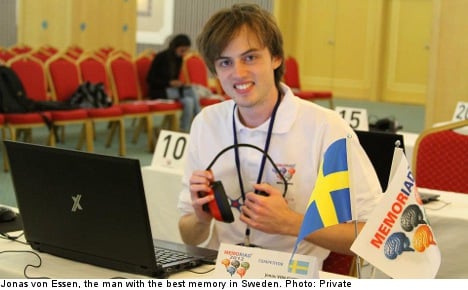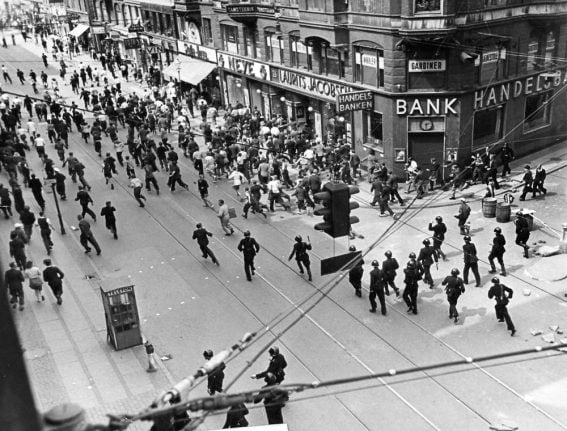Jonas von Essen, a 21-year-old student from Gothenburg, won three bronze medals in Sunday’s World Memory Championships in London.
“People always ask me when I realized I had a good memory, but I tell them that I never did,” he tells The Local.
“It’s just a question of training. My memory was just like anyone else’s.”
But not anymore. One of von Essen’s bronze medals came after he correctly remembered the order of 21 decks of playing cards in one hour.
“I could have kept going, but you’re only allowed one hour,” he laughs.
In another category, he correctly remembered the order of 1,682 separate digits – without error.
“The secret,” he explains, “is to think of a picture. For example, a 2 looks like a swan, an 8 like a snowman and 4 like a sailboat.”
“After that, it’s just a matter of making a story. So 284 might be a swan throwing a snowman at a sailboat. The more ridiculous it is – the easier it is to remember.”
His other bronze came in the abstract images category, and he also finished third overall.
Von Essen even admitted to already memorizing The Local’s phone number by inventing a bizarre story that he claimed would stick with him for at least a few weeks.
So, how did it all start for the brain-trained Swede? Was he remembering the alphabet before he knew what it meant? Was he a poker champion as a toddler?
Rather the opposite.
“A few years ago, I read a book called Memo by a Norwegian guy who explained memory techniques. I found it fascinating, and last summer I decided some of the world championships records might be beatable,” he recalls.
This year was the first time the maths and physics student competed in the world championship tournament, which has been held annually since 1991.
Von Essen trained for three to four hours a day in the lead-up to the competition.
“I understand it might sound boring,” he chuckles.
“But it’s actually a lot of fun; it’s more like a game, and you have the chance to be really creative with your imagination.”
Von Essen’s efforts helped the Swedish team finish in second place overall, their best-ever result at the World Memory Championships, coming in just behind the team from Germany.
“We even beat the US and China. Our previous best result was sixth place, so we’re thrilled,” he tells The Local.
“It’s a really amazing way end to the competition.”
Unforgettable, no doubt.
Take a look at our past Swedes of the Week.
Oliver Gee





 Please whitelist us to continue reading.
Please whitelist us to continue reading.
Member comments